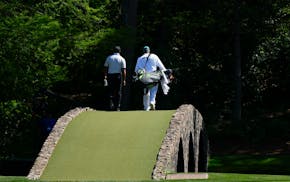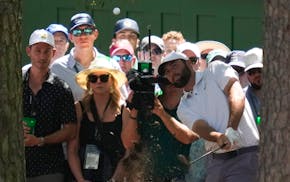The advent of the NFL season will provide a respite from sports riddled with performance-enhancing drugs, such as baseball and cycling.
If you can read that sentence without laughing, you are one naive fan.
We know many baseball players cheated in the '90s and early 2000s, and we know some cheat today. For every Melky Cabrera who gets caught there must be dozens, if not hundreds, who are smart enough to avoid testing positive in a system that is easy to beat.
We know cyclists cheat. The evidence is overwhelming. When Lance Armstrong pretended to take a principled stand by abandoning his legal fight to defend himself, he was avoiding facing public testimony by a squadron of former teammates. Now another former teammate, Tyler Hamilton, has written a book in which he details his own, and Armstrong's, cheating, and other former Armstrong associates are speaking openly about his PED use.
According to excerpts and reports by ESPN.com cycling expert Bonnie Ford, the grander point of Hamilton's book is not that there was cheating in cycling. That's obvious. It's that the cheating was blatant and accepted; that Armstrong knew winning the Tour de France required him to cheat more effectively than his peers.
If Armstrong could avoid testing positive for PEDs while winning the Tour de France seven times, what does that tell us about the National Football League, a sport filled with the biggest, strongest, fastest and most explosive athletes in our society?
That's right: The NFL must be stuffed with performance enhancers.
The difference is that we don't care.
Maybe, in 2012, we shouldn't.
Given the true problems in our society, should we be investing federal money and angst over professional athletes trying to make themselves better, and their teams better, and in the process making their sports more interesting?
Don't we watch professional sports to see superhuman effort and talent? We ask players to run head-first into fences to make catches, and to risk brain or spinal damage while making tackles, but we cringe at the idea of them sticking a thin needle into a vein?
And if we believe that cheating is rampant, isn't an athlete who takes PEDs just giving himself a fighting chance against the guys on the other team who are juicing?
As for the notion that it is up to sports' governing bodies to ensure a level playing field, well, they have failed. Cops can't keep up with chemists; cops can only bust the users dumb enough to fail to cover their tracks.
Baseball Commissioner Bud Selig likes to call today the game's golden age, and with waves of young talent filling beautiful ballparks, he has a point. But the real golden age of baseball occurred when the players might as well have been carrying syringes to the on-deck circle and injecting themselves as the dug into the batter's box.
Baseball was never better than in the late '90s and early 2000s, when staffs were filled with pitchers throwing 95 mph and lineups were packed with hitters capable of launching 450-foot home runs.
The same Mark McGwire some pretend is a pariah forced teams to open their ballparks early so fans could watch spectacular rounds of batting practice.
We're not allowed to reminisce about the '90s, of course, only about those golden eras when the ball was dead, black men were excluded, an elbow twinge could end a young man's career, spitballs were encouraged and the game revolved around New York City.
We're not supposed to ask this question, because it doesn't fit our profile as a law-and-order society, but this is the right question to ask these days:
Isn't baseball better under the influence of performance-enhancing drugs? Isn't sport?
In the fall of 1998, McGwire and Sammy Sosa made baseball more compelling than the NFL in the eyes of the average American sports fan. That hasn't happened since.
When Armstrong was "allegedly" juicing, the Tour de France caused Americans who couldn't spell "croissant" to rise early to watch the peleton.
With rosters filled with suspiciously large men, the NFL, with its implausible deniability, continues to be the most popular sport Americans have ever known.
Nobody cares if NFL players juice. Maybe nobody should.
Jim Souhan can be heard Sundays from 10 a.m. to noon and weekdays at 2 p.m. on 1500-AM. His Twitter name is SouhanStrib. jsouhan@startribune.com

Souhan: Why Tiger Woods should keep swinging
Souhan: Scheffler wins Masters again, shows what makes him special
Morikawa falters in final round at Masters

Keeping up with the Joneses who helped design Augusta National's classic back nine


